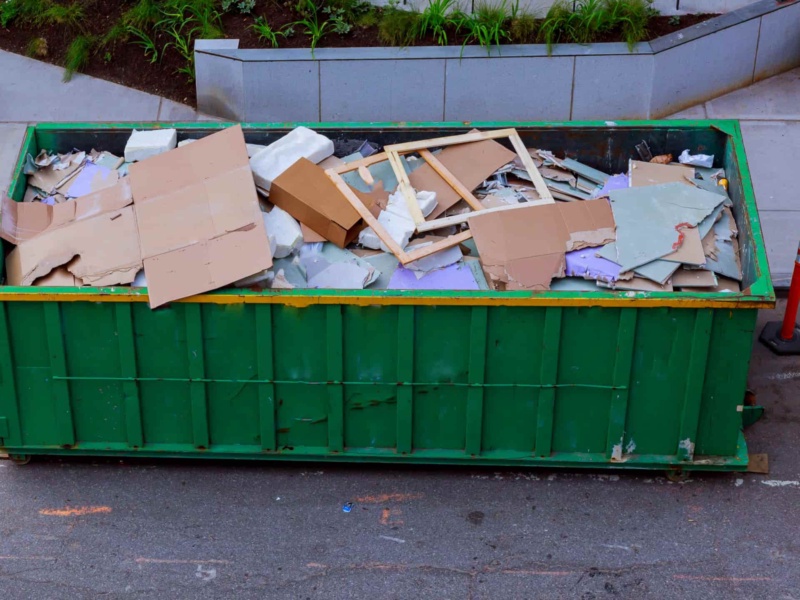Renting a rolloff dumpster is not just a necessity for large-scale cleanups, renovations, or construction projects, it's also a convenient solution. However, it is crucial to avoid overfilling rolloff dumpsters to ensure safety, prevent additional fees, and comply with local regulations. In today's blog, we'll provide practical tips and strategies to help you efficiently manage your waste and avoid overfilling a rolloff dumpster rental.
Risks of Overfilling Your Rolloff Dumpster
Overfilling a rolloff dumpster might seem like an easy way to save time and eliminate excess waste, but it can lead to numerous issues. When a dumpster is overfilled, it poses a significant safety hazard.
Debris can fall out during transport, potentially causing accidents or injuries. Additionally, overfilled dumpsters can attract fines and penalties from waste management companies and local authorities. Understanding these risks can save you time, money, and trouble in the long run, providing a sense of relief and reassurance.
Understanding Weight Limits for Rolloff Dumpsters
Weight limits for rolloff dumpsters vary depending on the size of the container. Generally, dumpsters range from 10 to 40 cubic yards in length. A 10-yard dumpster can hold approximately 2-3 tons of waste, while a 40-yard dumpster can handle up to 5-6 tons.
Exceeding these weight limits can result in additional charges. Knowing the weight limits for the specific size of the roll-off dumpster you are renting is critical to avoid unexpected costs and ensure you are well-informed and prepared.
The Weight Capacity of Rolloff Dumpsters
Each rolloff dumpster has a designated weight capacity you should stay within. The weight capacity is determined by the size of the dumpster and the type of material you are disposing of. For example, heavy materials like concrete or dirt have weight limits that differ from lighter materials like household waste. Always check with your rental company to confirm the weight capacity and ensure you are within the limits.
Tips for Properly Filling Your Rolloff Dumpster
Correctly filling your rolloff dumpster is critical to maximizing its use while staying within safety and weight limits. Here are some tips:
Weight distribution: Place heavier items on the bottom to evenly distribute the material weight and prevent the dumpster from tipping over.
Break down large items: Disassembling bulky items can help you utilize the space more efficiently and maintain a balanced load.
Refrain from overfilling: Ensure the waste doesn't exceed the full line appearing inside the dumpster. An overfilled dumpster can lead to safety risks and additional charges.
Know your materials: Consider the weight of the materials you dispose of and choose the appropriate dumpster size.
Ask a Rolloff Dumpster Expert
Overfilling a rolloff dumpster rental can lead to numerous problems, including:
- Safety Hazards
- Additional Charges
- Possible Municipal Fines
By understanding the weight limits and capacity of your rolloff dumpster and following best practices for loading, you can avoid these issues and make your waste disposal process cost-effective and efficient. To learn more about rolloff dumpster rentals or to schedule a rolloff dumpster for your next project contact the Reliable Rolloffs team of experts at (417) 358-4440. They offer dumpster rentals in 20, 30, and 40 cubic yards.
